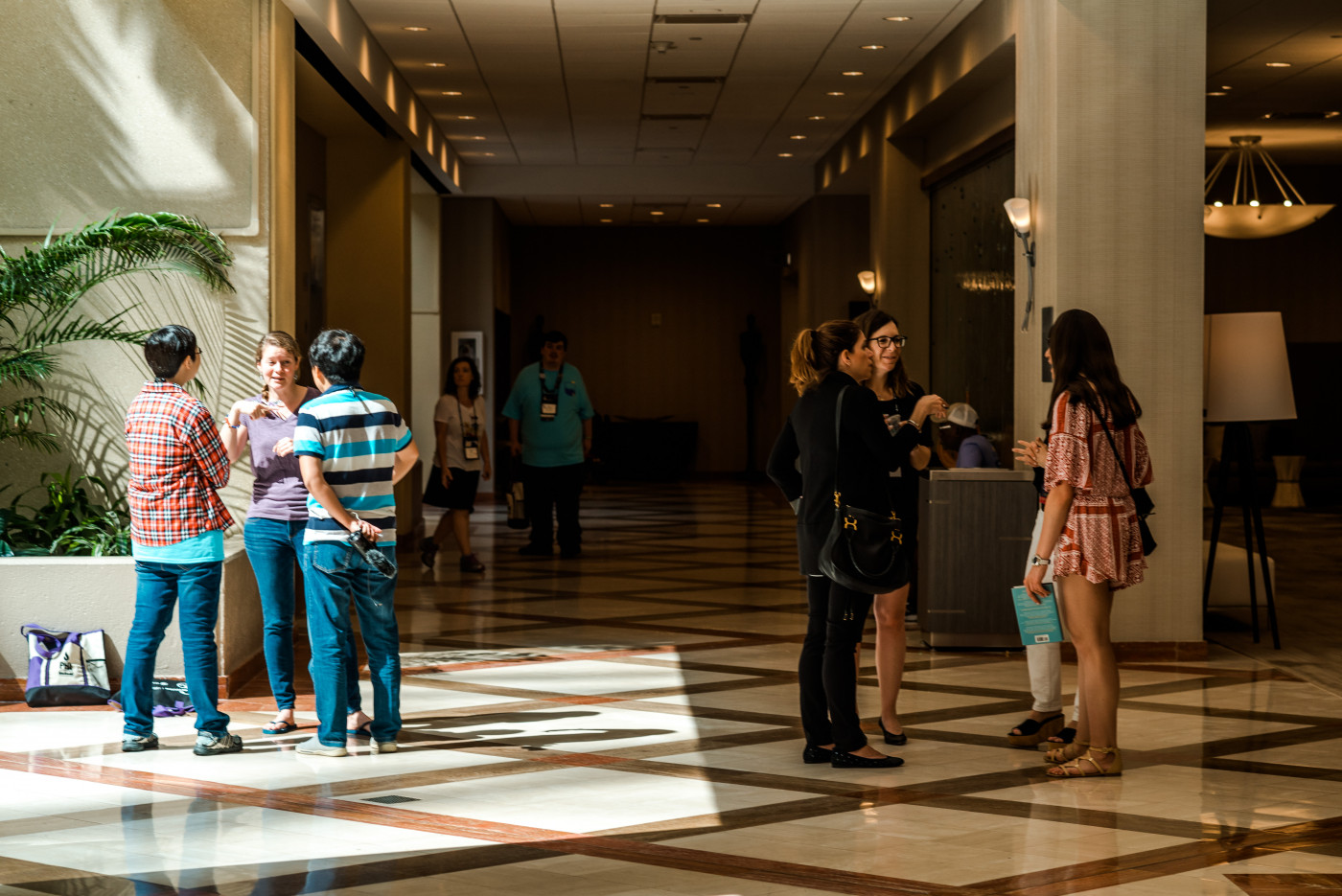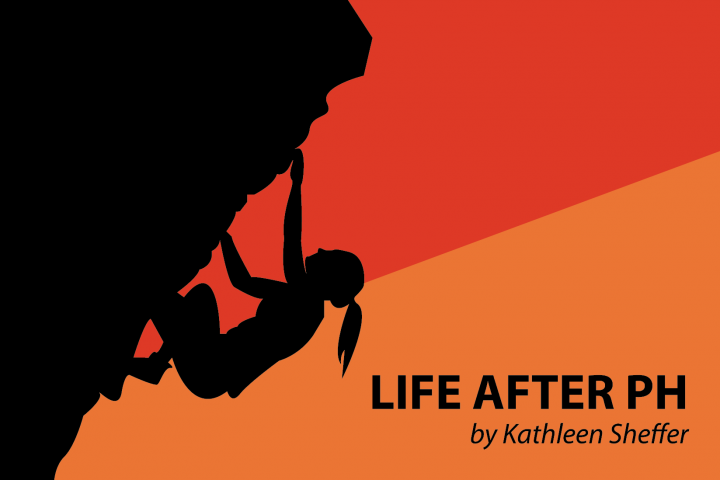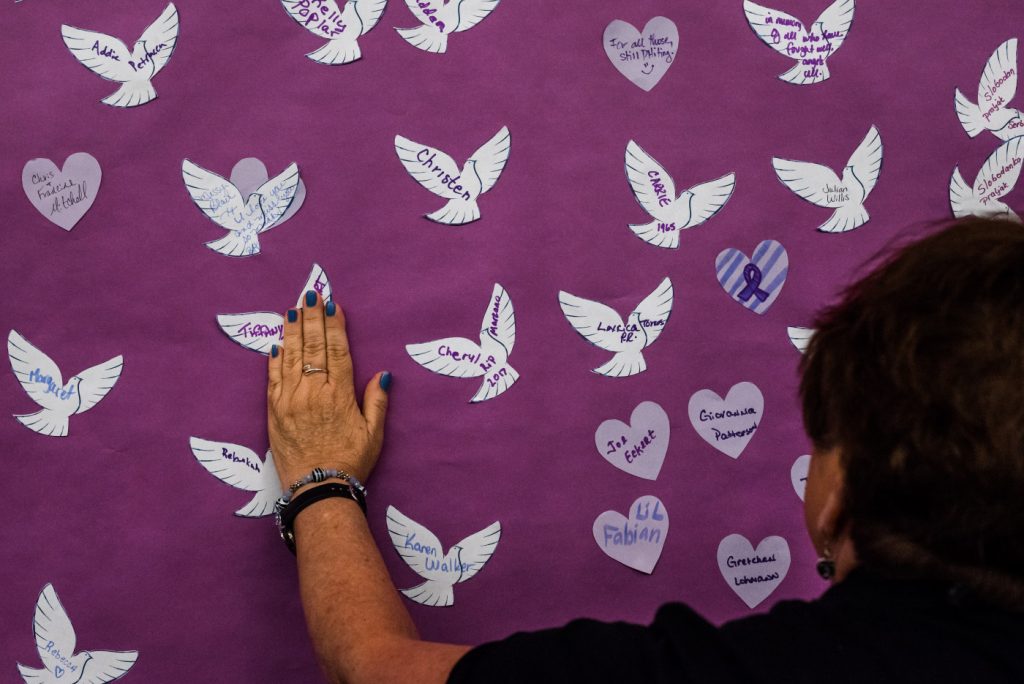Why I Cried at the Pulmonary Hypertension Association Conference
Written by |

Patients, physicians and caregivers networking near the end of the 2018 PH Conference. (Photo by Kathleen Sheffer)
Last week, I reflected on attending the Pulmonary Hypertension Association 2018 International PH Conference and Scientific Sessions for the first time since my heart-lung transplant. Click here to read that post.
Attending PHA’s Conference was an intensely emotional experience for me. I think it’s rather natural to disappear from a disease community once you no longer have the disease. But my weekend in Orlando, Florida, convinced me it’s important that I stay involved. I have knowledge from “the other side” of transplant that may serve patients who are considering it for themselves.
I was glad to have the chance to share some of my experience in a lung-transplant-specific support group. It was also painful to do so. Though I love my life post-transplant and stay focused on the positive results, there are parts of my recovery I’d rather not relive. I find it most difficult to discuss the not-so-amazing parts of the process with people who may have to go through a similar process.
Each transplant journey is different. A list of possible complications won’t be exhaustive, or helpful. I feel a responsibility to share constructive information about transplantation. Striking a balance between that and portraying the reality of my experience is something I work on every time I talk or write about it.
The man who introduced himself to the group immediately before I did lost his daughter in 2016, two years after her double-lung transplant. There I was celebrating two years since my heart and double-lung transplant, stronger and healthier than ever. Though my transplant journey wasn’t entirely smooth, his daughter’s repeated episodes of rejection and struggles with aspiration make the mountains (psychosis, gastroparesis, acute rejection, neutropenia) I climbed mere molehills. How utterly unfair!
Join the PH forums and be part of the conversation about Lung Transplantation.
But I’m no stranger to survivor’s guilt. I sat there deeply missing my long-time PH Conference buddy, Maddie, who passed away a year ago after two lung transplants. The bravery of this father who remains part of the community, not despite his loss but because of it, overwhelms me. He walks the line between constructive information and reality with me. Later, I met his wife and son. They all hugged me and told me they are happy to see me thriving. I promptly retreated to my room to bawl my eyes out.
Another event that stood out occurred while I was photographing a discussion for parents of kids with PH. One mother told the group, “Make sure you tell your child PH is not their fault.” Her child had started sobbing when she told him so. I know I would have done the same at that age. Even as an adult, I had to leave the room, fighting back tears.
It takes work for me to accept the fact that my disease is not my fault. Logically, I believe it, but I’m not sure I live my life with that in mind. I feel more that my disease is a challenge that belongs to me. I have to endure. I struggle to accept that the disease belongs to my caregivers as well and is not a burden I have laid upon them. I’m even more reluctant to let my disease affect people who come into my life by choice. If only they could choose to be friends with me, without my disease. My disease may not be my fault, and it may not define me. But it is decidedly a part of my life, and it becomes a part of the lives of all who care about me.
Have you ever felt that PH is your fault, or that you are a burden to others? Discuss the subject in our Pulmonary Hypertension News forums.
That I had such a strong reaction to this mother’s advice reminded me that PAH shaped me, and shaped my relationships. I wrote flippantly at the start of this post about no longer having the disease. Yes, my diagnosis has changed, but pulmonary arterial hypertension influenced 23 years of my life. PAH led to my transplant. For better or for worse, it’s deeply embedded in who I am.
I’d like to think that my success story can encourage other patients considering a lung transplant. But more certainly, maintaining a relationship with the PH community helps me process the transition. With so many drastic changes in my life, connecting with parts of my pre-transplant life keeps me grounded. Exhausting as it may be, feeling the breadth of emotions involved in my transition from sickness to health (albeit tentative) has been necessary for me to keep moving forward.
***
Note: Pulmonary Hypertension News is strictly a news and information website about the disease. It does not provide medical advice, diagnosis, or treatment. This content is not intended to be a substitute for professional medical advice, diagnosis, or treatment. Always seek the advice of your physician or other qualified health provider with any questions you may have regarding a medical condition. Never disregard professional medical advice or delay in seeking it because of something you have read on this website. The opinions expressed in this column are not those of Pulmonary Hypertension News or its parent company, Bionews Services, and are intended to spark discussion about issues pertaining to pulmonary hypertension.






Joydeep Kar
I am from India. I am tested PH Grade-I symptoms for the
first time.
I a very nervous now. Don't know what will be the next.